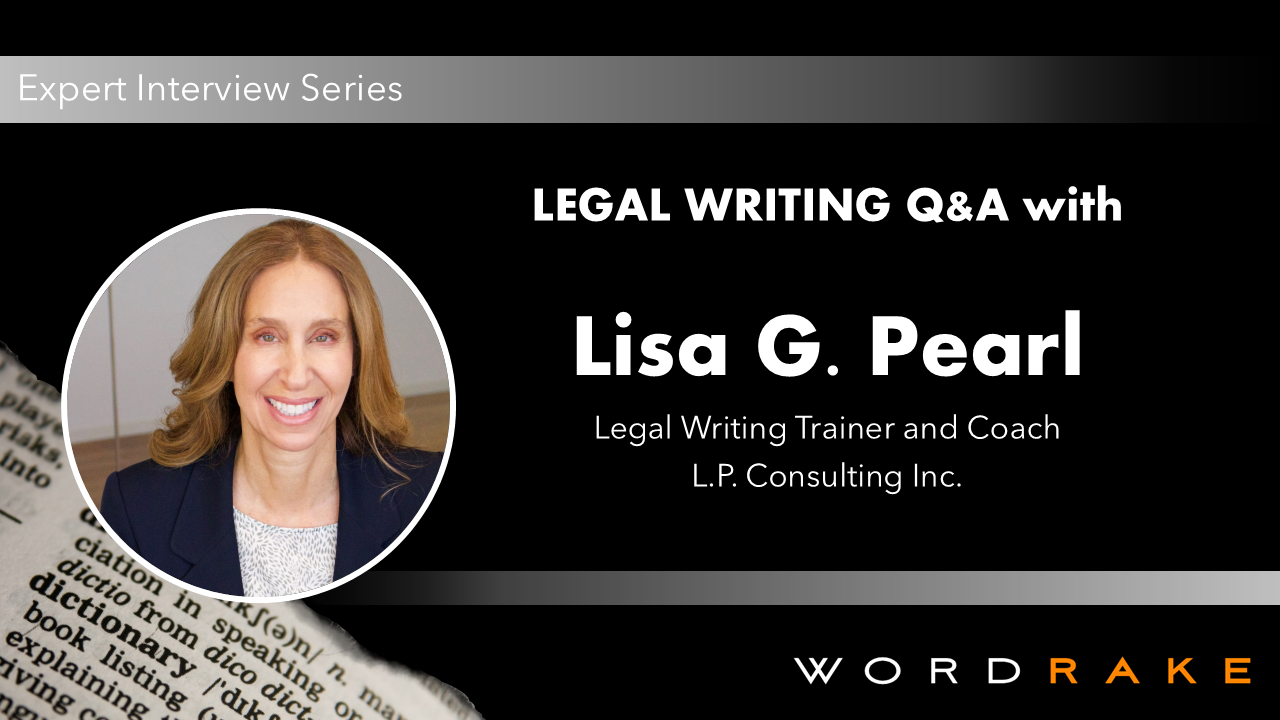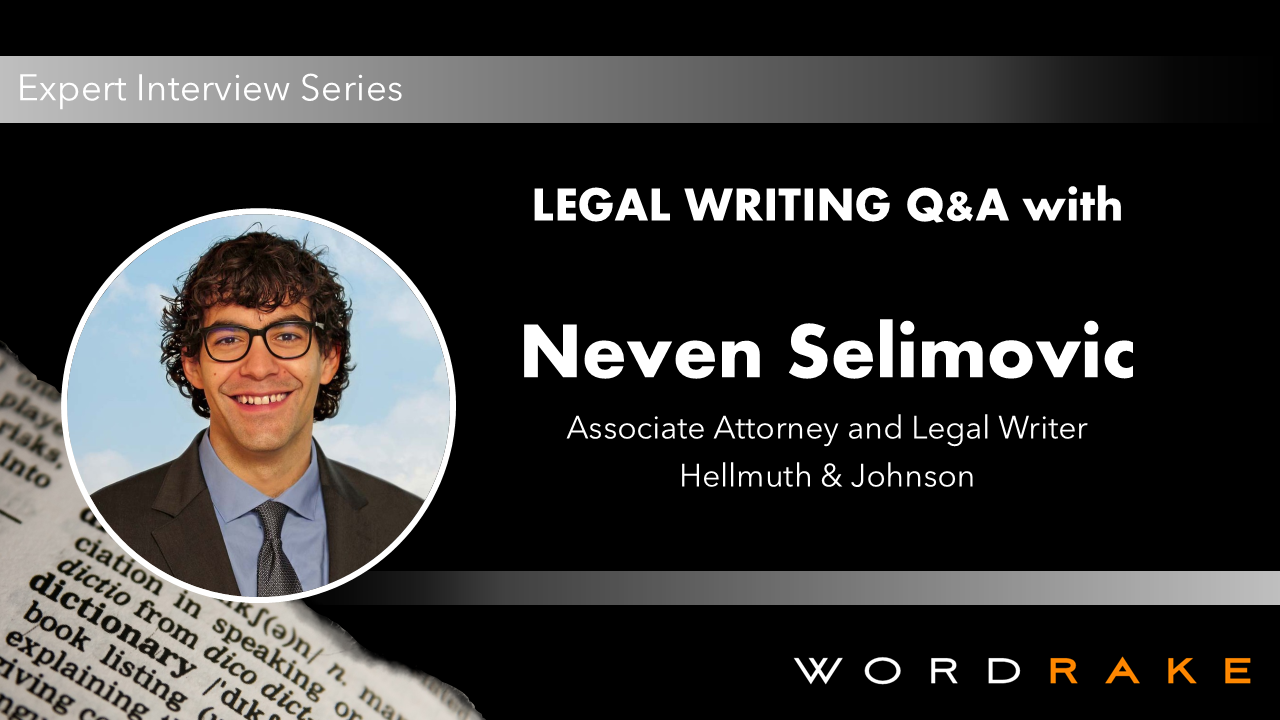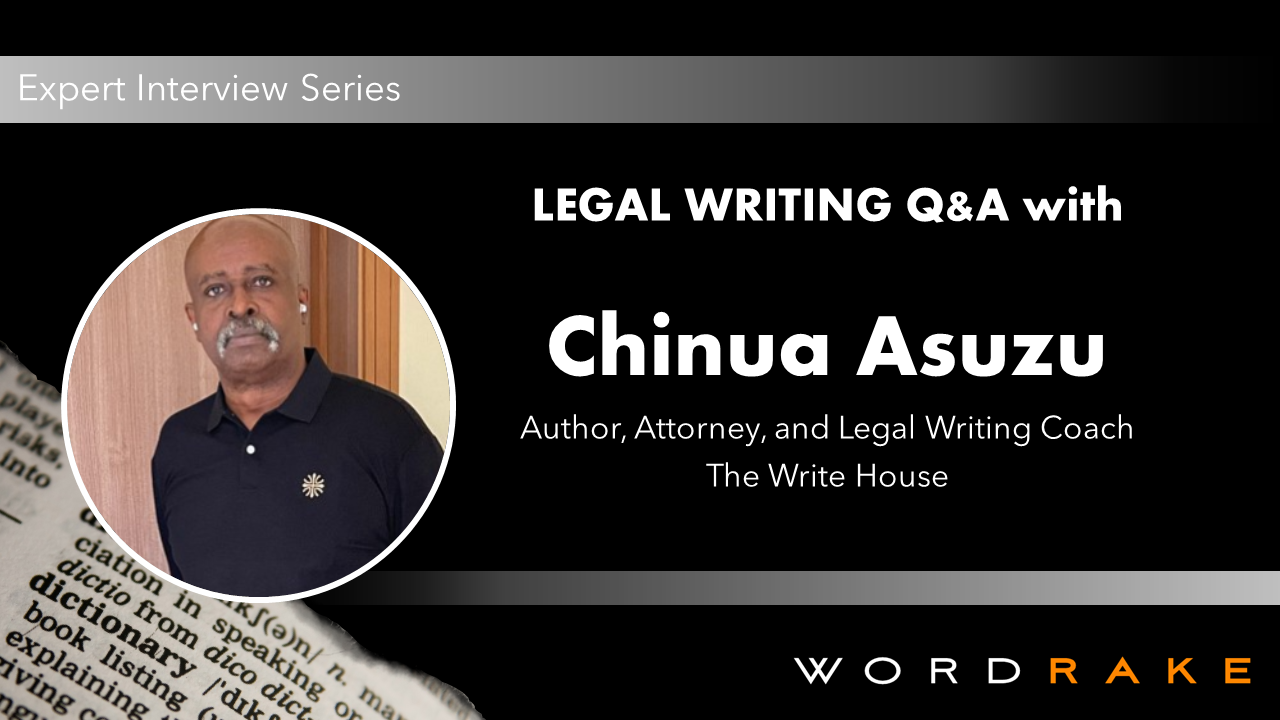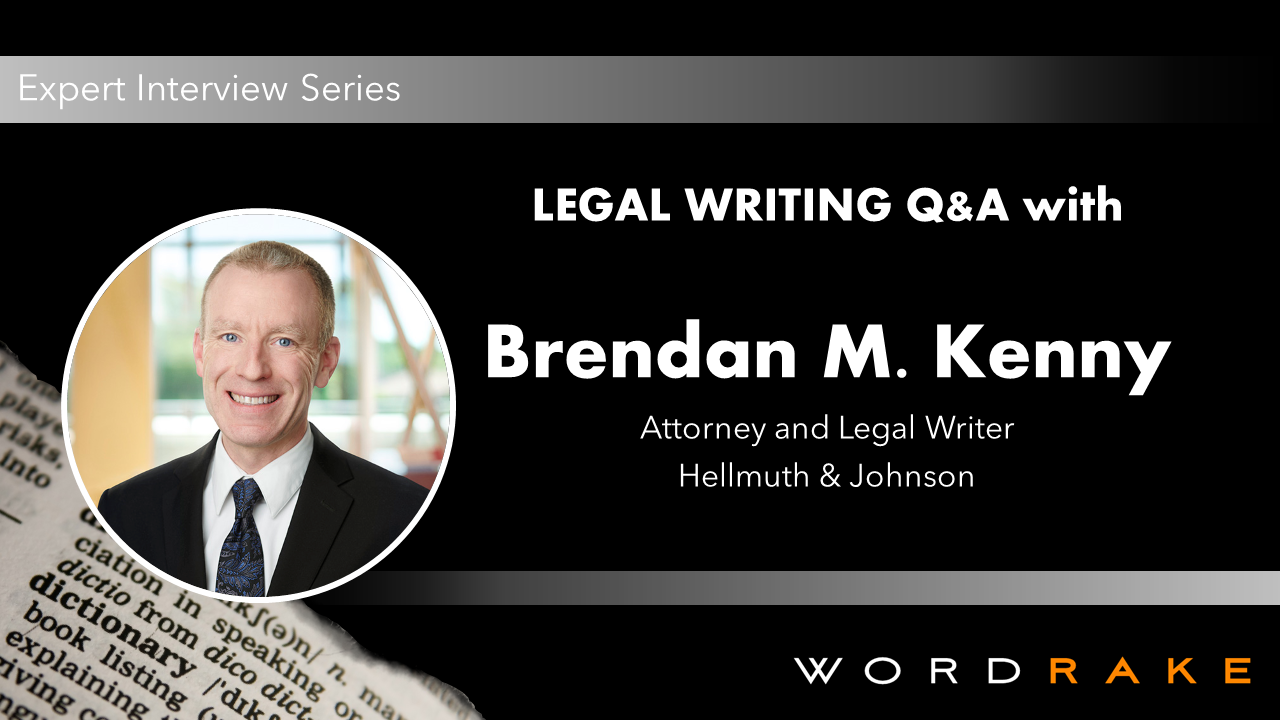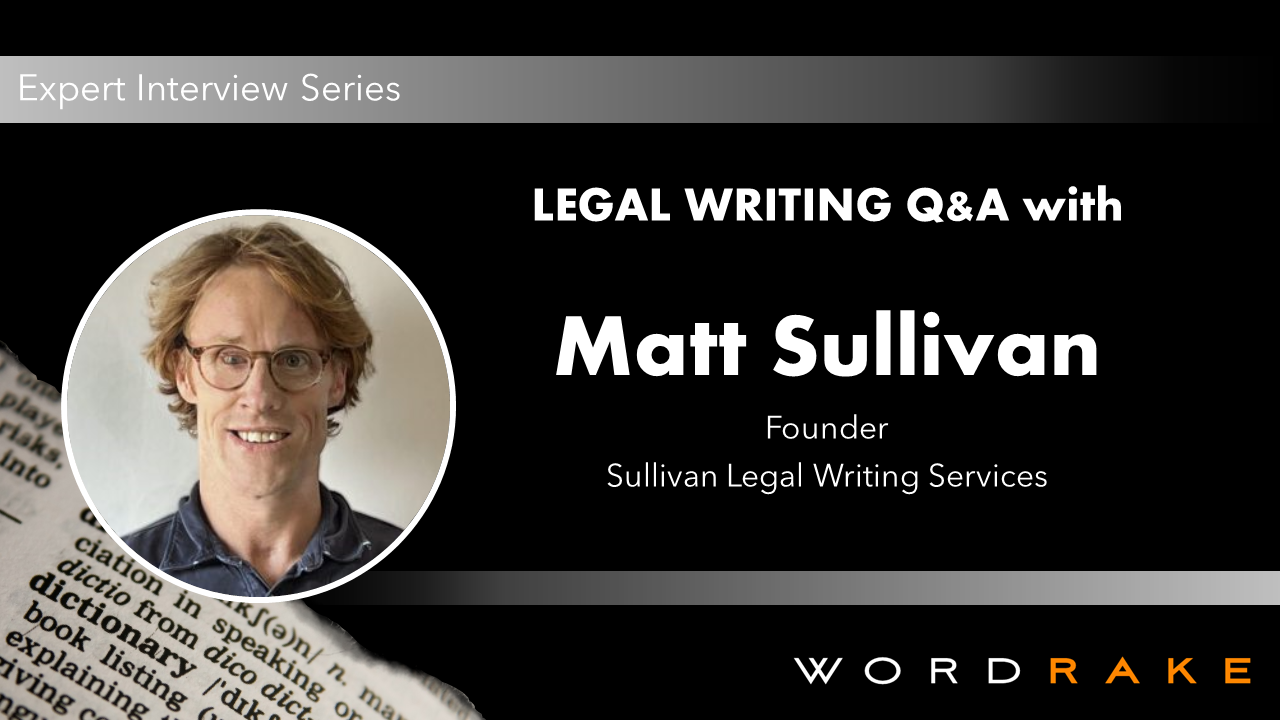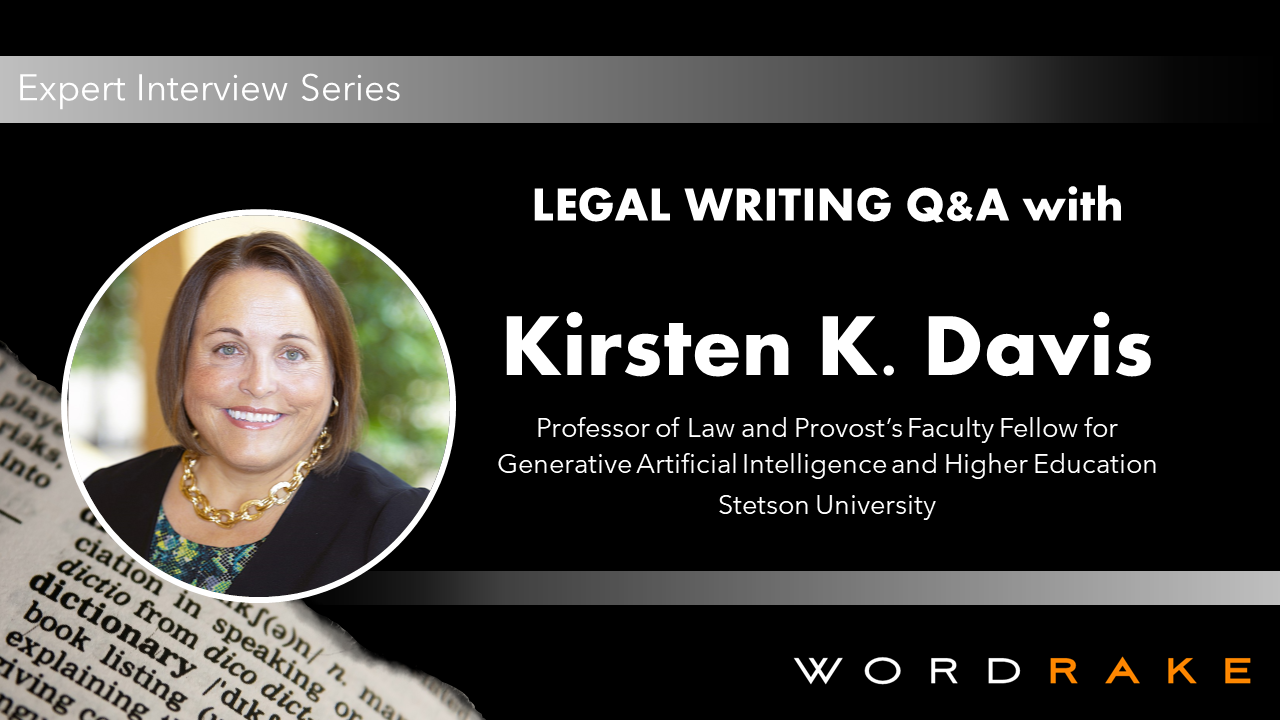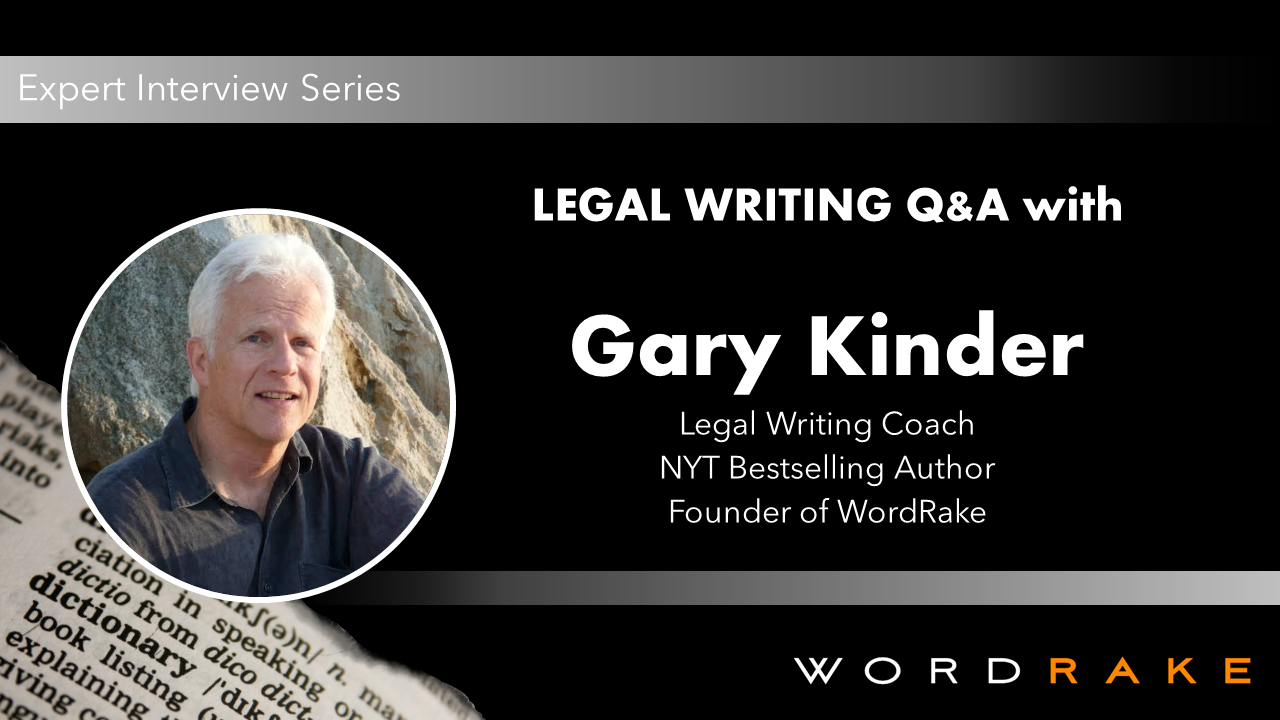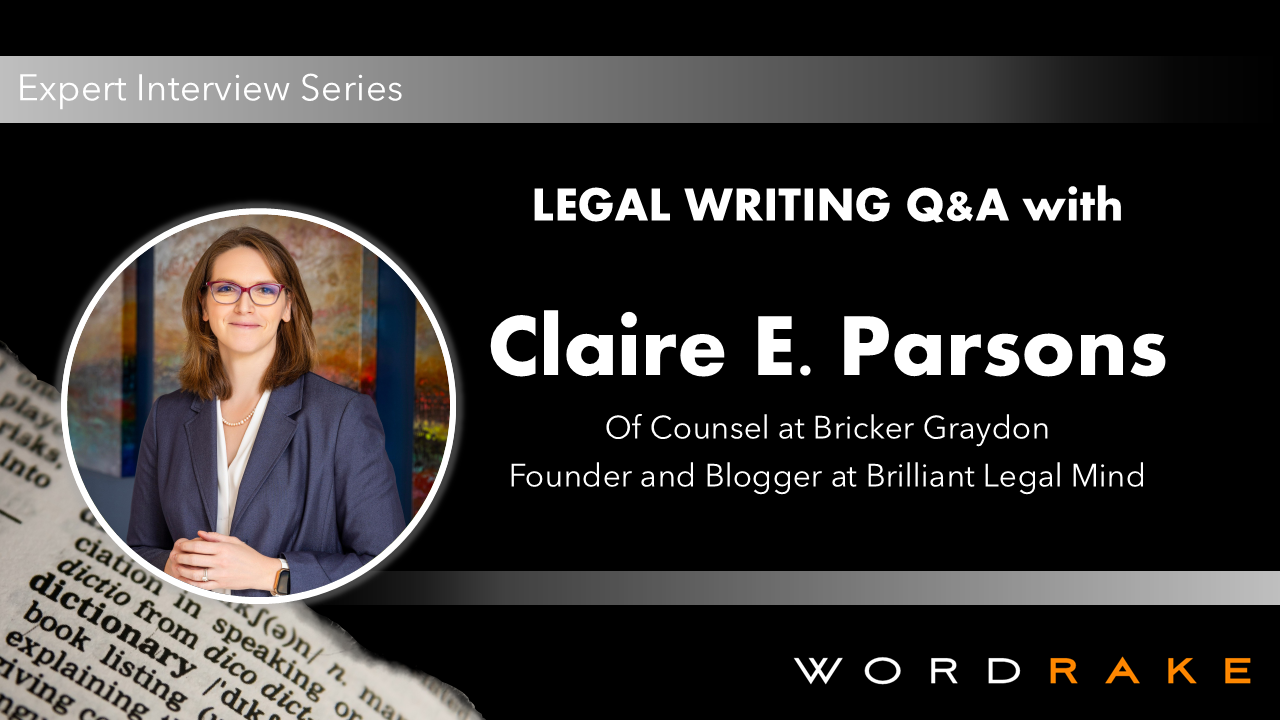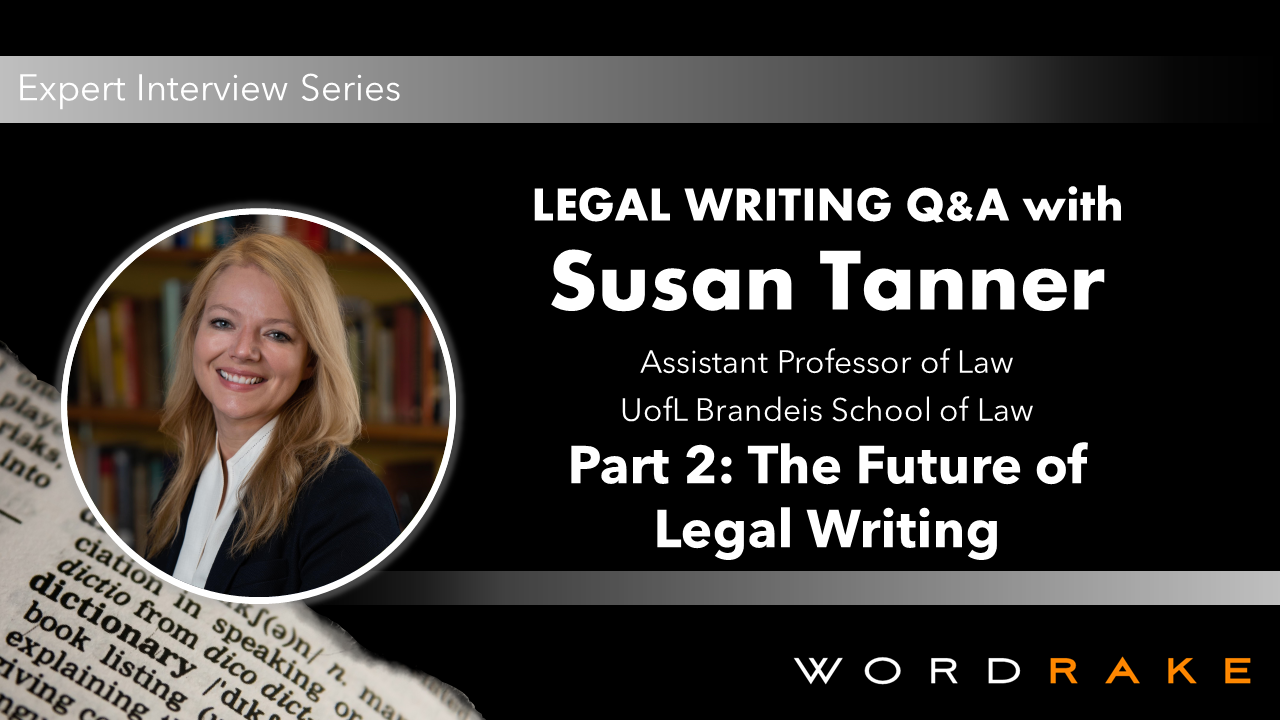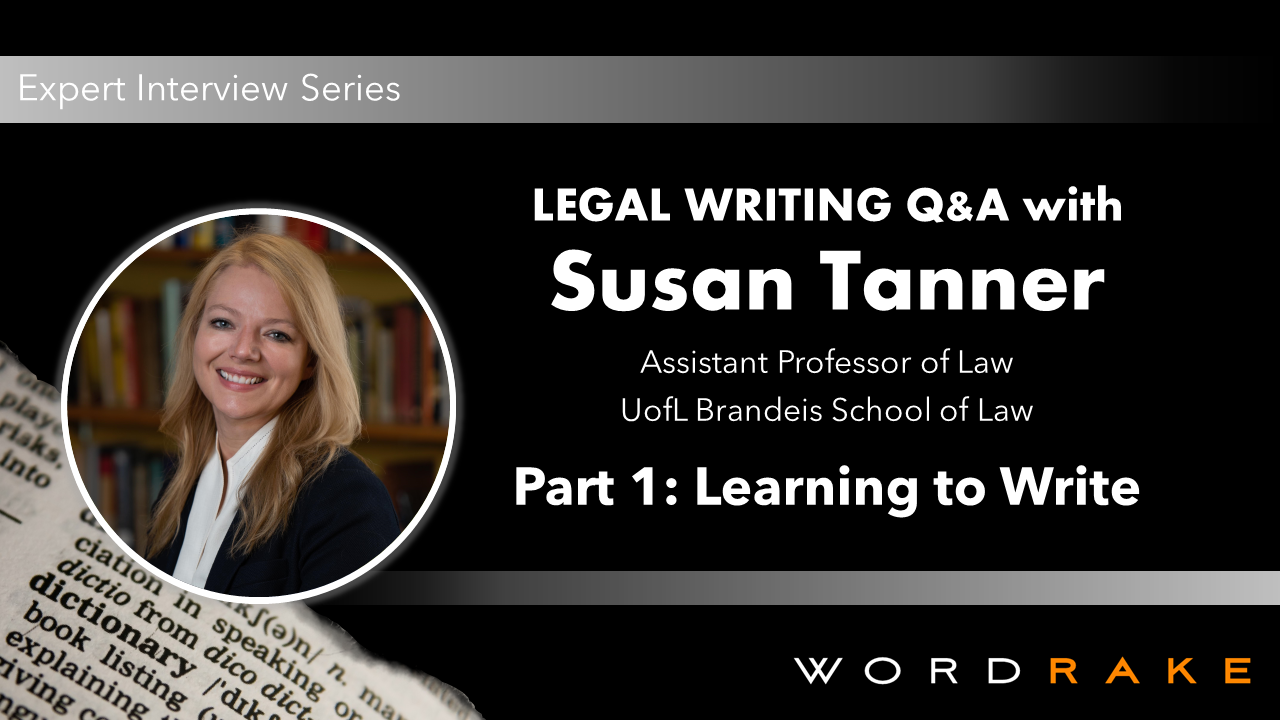Not everyone can teach. Senior partners may be expert legal writers, but it doesn't mean they all have the time, patience, or skill to help associates learn their craft. That's where legal writing coaches and trainers like Lisa Pearl come in. She talks about her writing and teaching process below.
Continue readingTech tools, especially AI tools are a hot topic in the legal writing field, and a lot of legal writers are anxious about what they mean for the future. Not associate attorney and legal writer Neven Selimovic: he believes in earning and using every tool he can to bring clients the best possible outcome. He shares his strategies and philosophy in this interview.
Continue readingWhat makes good legal writing? Clarity and simplicity! Attorney and legal writing coach Chinua Asuzu practices what he teaches. Even in this legal writing interview, he uses visual clues like lists and bullet points to make his meaning easy to read and understand. He shares his best practices with us.
Continue readingDoes your firm have a dedicated legal writing team? If you have the resources, it might be worth considering! Brendan M. Kenny from Hellmuth & Johnson works as a litigator himself, and as a legal writer for other members of the practice. This gives him and his colleagues in the legal writing group the opportunity to explore and perfect the use of new technologies to support their writing. He shared his experience with us in this expert interview:
Continue readingNot everyone feels confident in their writing, or has time to tackle every brief themself. Some attorneys turn to AI sources to help in those moments, but with more firms making rules about whether and how AI can be used in practice, that’s not always an option. That’s where legal ghostwriters like Matt Sullivan come in. He shared some of his professional experience with us.
Continue readingLegal writing is at a crossroads. When ChatGPT passed the bar exam, it became impossible to ignore the possibilities that generative AI holds for legal writers. Professor Kirsten K. Davis spent her 2023 sabbatical exploring AI technology, and now teaches law students how to use it effectively in their writing practice. She shared some of her insights in her legal writing interview:
Continue readingAfter years of teaching legal writing courses, Gary Kinder noticed a pattern in the mistakes people were making. Once he noticed, he knew there had to be a way to make editing for clarity and brevity quicker and easier, freeing writers up to do more detail oriented editing. We asked him about how he came to create WordRake, and he shared the story with us.
What is your role and how did you get to where you are today?
After law school, I did not want to practice just yet. I passed the Florida bar, briefly taught Legal Writing at the University of Florida, then headed West to see snow. I worked as a bellman in the Sun Valley Lodge, tried cases one day a week as the county’s assistant prosecutor, and sold my first article to a national magazine. One cold January night, while working the front door of the Lodge, I met the wife of a famous novelist, who introduced me to her husband, who introduced me to a New York agent, who turned me over to his son, who was just beginning his career representing authors. He sold my first book to a New York publisher, and he is still my literary agent.
Continue readingLaw is a high stress field. Lawyers finish school and descend into a meatgrinder in legal practice. The fast pace, high stakes, and need for perfection can overwhelm even the most skilled attorney. When clients are depending on you, every word counts. So how can a legal writer balance their responsibilities and their basic wellbeing? Attorney, author, and blogger Claire E. Parsons has faced these challenges head on, and has advice for other lawyers about their writing and their wellness.
What is your role and how did you get to where you are today?
I feel fortunate to have multiple roles at this stage of my career. I am as surprised by this as I am pleased about it. For my law practice, I am Of Counsel at Bricker Graydon in the Cincinnati area. I have been practicing for 15 years in the areas of school law, employment law, and litigation. I started in a smaller insurance defense firm with a strong focus on local government work. Though I started in civil litigation, I soon was asked to learn special education to meet client needs. I did that and quickly became known for my work and then moved more into general school law. I am fairly new at my current firm but I was drawn to the firm’s strong public sector and school law presence.
Continue readingThe legal writing landscape evolves constantly, and lawyers and law professors alike must keep up. It's not just riding the wave of technological and linguist advancement, however. Professors like Susan Tanner of UofL Brandeis School of Law are shaping the future of legal writing. She shared her hopes for that future with us in the second half of her legal writing interview.
How would you like to see legal writing change in the next 10 years?
I’d like to see it get easier.
Continue readingThose unfamiliar with the law might imagine it to be very black and white--but legal writing experts like Professor Susan Tanner know that legal practice is about holding tension between truths. In this first part of her legal writing interview, Professor Tanner addresses learning to write well while balancing the needs of clients and the court.
Continue reading
